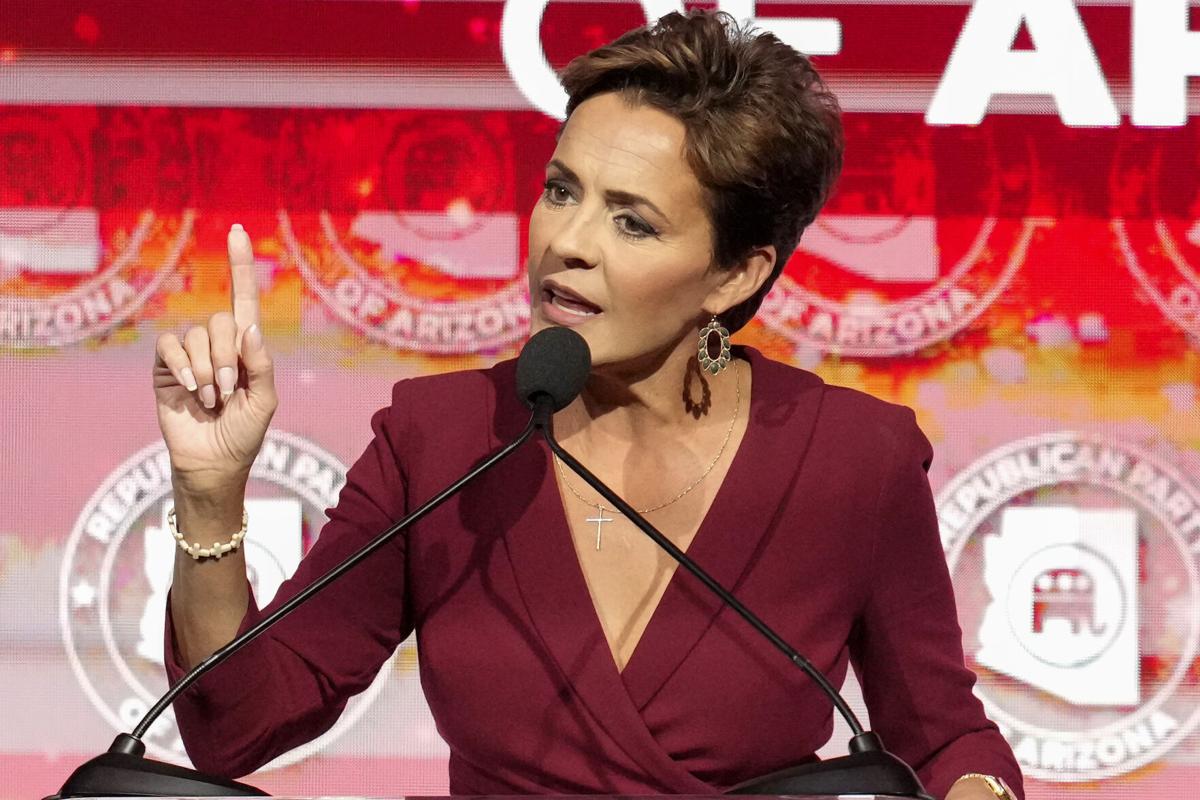PHOENIX — Alleging laws were broken, the losing Republican candidates for the top statewide offices are asking judges to unilaterally declare them the winners of their races — or at least call a new election.
But it remains to be seen whether they can produce evidence of misconduct to justify such radical relief. And even if judges conclude legal violations, getting a court to make such an order could prove difficult absent a showing that these allegations affected the outcome.
In legal papers filed late Friday, attorneys for gubernatorial hopeful Kari Lake laid out a series of claims they say shows “hundreds of thousands of illegal ballots infected the election in Maricopa County.” That far exceeds the certified election results which show Lake losing to Democrat Katie Hobbs by 17,117 votes, they claim.
Also seeking to be declared the winner is Mark Finchem despite the fact that the official tally shows Democrat Adrian Fontes getting 120,208 votes more than he did in the race for secretary of state.
The new lawsuits come on top of a similar lawsuit filed earlier Friday by Abe Hamadeh who lost his bid for attorney general.
But his claim is in many ways more narrow — and with more specific facts — than the other two statewide contenders. Hamadeh cited Election Day issues, complete with numbers of affected voters, that he said should allow a judge to declare him the victor over Democrat Kris Mayes despite the final tally showing her with a 511-vote edge.
And there is a fourth challenge seeking to void the the 32,420-vote victory of incumbent Democratic Congressman Ruben Gallego over Republican challenger Jeff Zink.
Lake claims ‘intentional misconduct’
The most extensive of the claims is the 80-page lawsuit by Lake. She makes a series of allegations of not just mistakes but actual misconduct.
Some of these are backed by declarations of people who said they worked for Maricopa County on the election or were observers. They said the processes being followed in handling of ballots and signature verification were not followed.
But the common thread through all the lawsuits relates to the Election Day issues in Maricopa County.
The county uses vote centers which allow any person to cast a ballot at any location. That, in turn, requires a system where a ballot must be printed on site that includes only those races for which each individual can vote.
The on-site tabulators were not always able to read the ballots being printed out.
County officials have blamed the problem on printer settings. It took hours to identify the problem and implement the necessary fixes at all the affected polling places.
Lake alleges this was by design, claiming that the failures “could not have occurred absent intentional misconduct.”
But the only evidence she cited in the lawsuit was a sworn declaration by a “cyber expert’’ who apparently did not actually examine the Maricopa County equipment that failed.
‘Unsatisfying alternatives’ at polls
County supervisors said no one was denied the opportunity to vote.
They pointed out that every person whose ballots could not be immediately scanned had the opportunity to instead put them into a slot on the machine to be tallied later.
In fact, that is the process used now in many Arizona counties which do not have on-site tabulators.
Finchem, however, said in his own lawsuit that was not an acceptable alternative for people who may have waited in line an hour or more to cast their votes.
“These citizens wanted to assure themselves that their vote counted, and they had an absolute right to such an assurance,” his attorneys wrote. “Instead, they were offered weak and unsatisfying alternatives, like depositing their ballot into some mysterious Box 3 with the assurance their votes would be counted later.”
And they claim, without evidence, those votes “were likely never counted,” charging that they make up 60,000 missing votes from Maricopa County and 20,000 from Pima County.
Closely related are claims that some people, frustrated with delays at polling places, simply gave up and left.
Lake said that hurt Republican candidates as GOP voters are more likely to wait until Election Day to vote than Democrats.
Hobbs’ oversight role criticized
The lawsuits also claim that early ballots were counted even though the signatures did not match what was on county records. And there also are allegations that “chain of custody” requirements were not met for more than 300,000 Maricopa ballots, meaning there is no way to tell if they are legal.
“The separation of votes between Hobbs and Lake is far narrower than the number of presumptively illegal and illegally cast ballots in Arizona,” Lake’s lawyers said.
Both Lake and Finchem also want judges to consider information not specifically related to voting this year.
One claim is that that Hobbs, in her role of secretary of state, and Maricopa County Recorder Stephen Richer participated in a “secret censorship program” because they asked that web sites remove “speech they didn’t like from public view.” But election officials said any requests were to remove posts that contained false information about the voting process, something they said is part of their responsibility to maintain public confidence in the system.
Lake also wants the judge handling her case to take notice of a national survey done after the election by Rasmussen Reports, a conservative polling company, which found 72% of likely voters said they agreed with a statement she made calling the election “botched.”
And Finchem said that Hobbs acted improperly in telling supervisors in Cochise and Mohave counties that they had to formally certify the results by the statutory deadline or face possible criminal charges even though several said they had questions about the election. He said her role in that and other activities amounted to “self-dealing” because she also was a candidate for governor.
New drone footage of the shipping containers at the Arizona border in the Coronado National Forest. The barrier has expanded to 3.25 miles. Video courtesy of Sky Island Alliance





